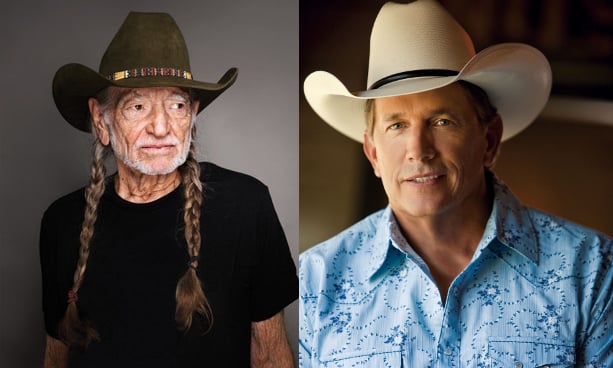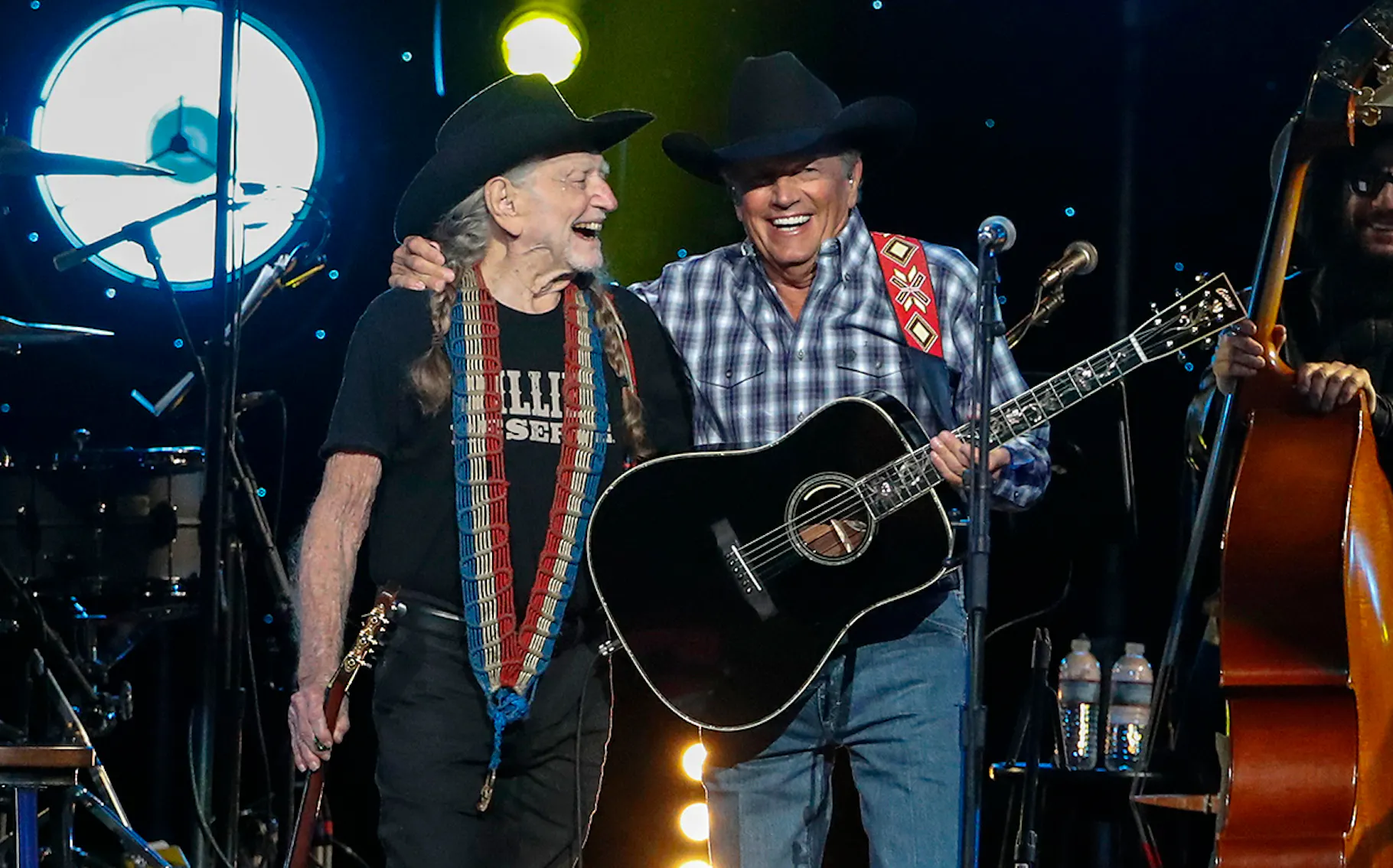
“When Legends Converge: A Historic Night with Willie Nelson and George Strait”
It took decades, but the moment country music fans have long hoped for finally arrived. In a spectacle that blended reverence, nostalgia, and pure artistry, two of Texas’ most iconic figures — Willie Nelson and George Strait — took the stage together for the first time to honor Nelson’s storied legacy. The event, held at Nashville’s famed Bridgestone Arena and presented by Blackbird Presents, was part of a grand tribute titled Willie: Life & Songs of an American Outlaw.
The fact that Nelson and Strait had never shared the stage before might seem surprising. Yet on closer inspection, it reflects their starkly contrasting personas. Willie, the ever-wandering troubadour, wears his legendary braids, weathered bandana, and a layer of Southwestern mystique. Strait, meanwhile, is the embodiment of tradition — neatly pressed Wranglers, a pristine Stetson, the picture of Texan dignity. Though existing in the same musical universe, their paths, remarkably, had not crossed until now — at least, not in song.
Fittingly, their collaboration debuted in a way that merged tribute and novelty. Near the end of the four-hour celebration, George Strait joined Nelson on stage to unveil their co-written song, “Sing One With Willie,” a track that will appear on Strait’s upcoming album Honky Tonk Time Machine. The song, written with George’s son Bubba Strait and producer Buddy Cannon, struck a balance between lightheartedness and homage.

“I ain’t never got to sing one with Willie / And I’ve held it inside long enough,” Strait crooned with good-humored wit, backed by an all-star lineup including Jamey Johnson on guitar and Amanda Shires on fiddle. The crowd roared with approval as Willie took a call-and-response role with his unmistakable voice weaving through the melody. Afterward, the two legends performed “Good Hearted Woman”, one of Willie’s most revered classics, sending the crowd into a surge of emotion and appreciation.
Of course, the evening was more than a duet — it was a comprehensive homage to Willie Nelson’s impact across generations and genres. Performers like Chris Stapleton, Lee Ann Womack, Sturgill Simpson, Eric Church, and Kris Kristofferson illuminated the stage with renditions of Willie’s most enduring hits. Each artist brought their own flavor to Nelson’s extensive catalog, capturing the breadth of his influence with heartfelt performances and unique interpretations.
The entire lineup read like a country music Hall of Fame in motion: Alison Krauss offered an ethereal version of “Angel Flying Too Close to the Ground.” Vince Gill delivered a soulful “Blue Eyes Crying in the Rain.” Lyle Lovett and Ray Benson stirred up energy with “Shotgun Willie.” Even Dave Matthews and John Mellencamp stepped in to lend their voices in honor of the red-headed stranger.
Though musical tributes are not unusual in Nashville, there was something especially poignant about this affair. It was not only a salute to a man who transcended the boundaries of the genre, but a testament to the connective power of song — the kind of music that endures because it speaks to the heart and soul of people, far beyond passing fads.
The night ended on a joyful note, with the entire cast joining together for a rousing medley of “On the Road Again,” “May the Circle Be Unbroken,” and “I’ll Fly Away.” The finale was capped by “Roll Me Up and Smoke Me,” with the full cast laughing and singing in a moment that felt like a campfire gathering of old friends.
While “Sing One With Willie” will soon be available on George Strait’s album, and the event itself is set to air on A&E later this year, those present at Bridgestone Arena witnessed something far more rare: a convergence of two musical universes, decades in the making. It was more than a performance – it was history, harmony, and heart, neatly wrapped in a four-hour love letter to the enduring legacy of country music.
